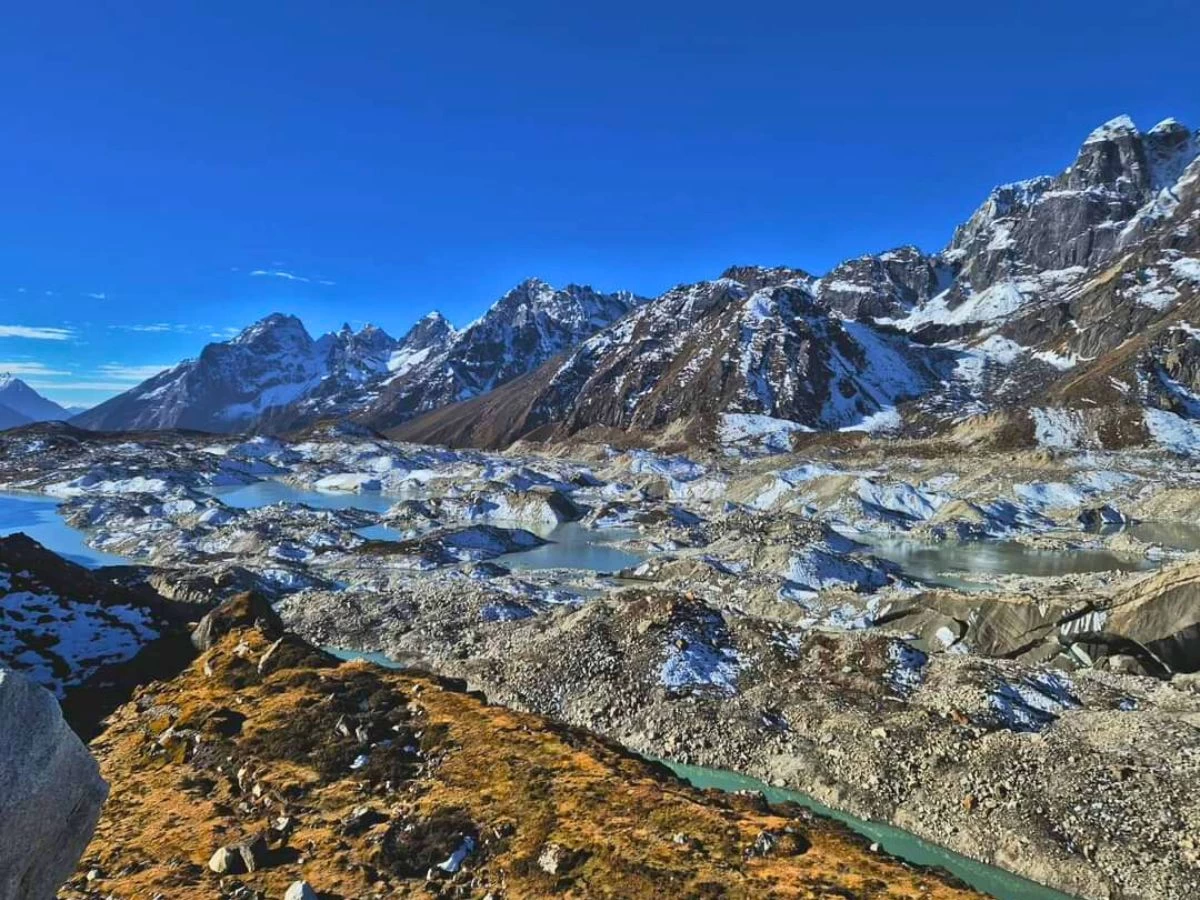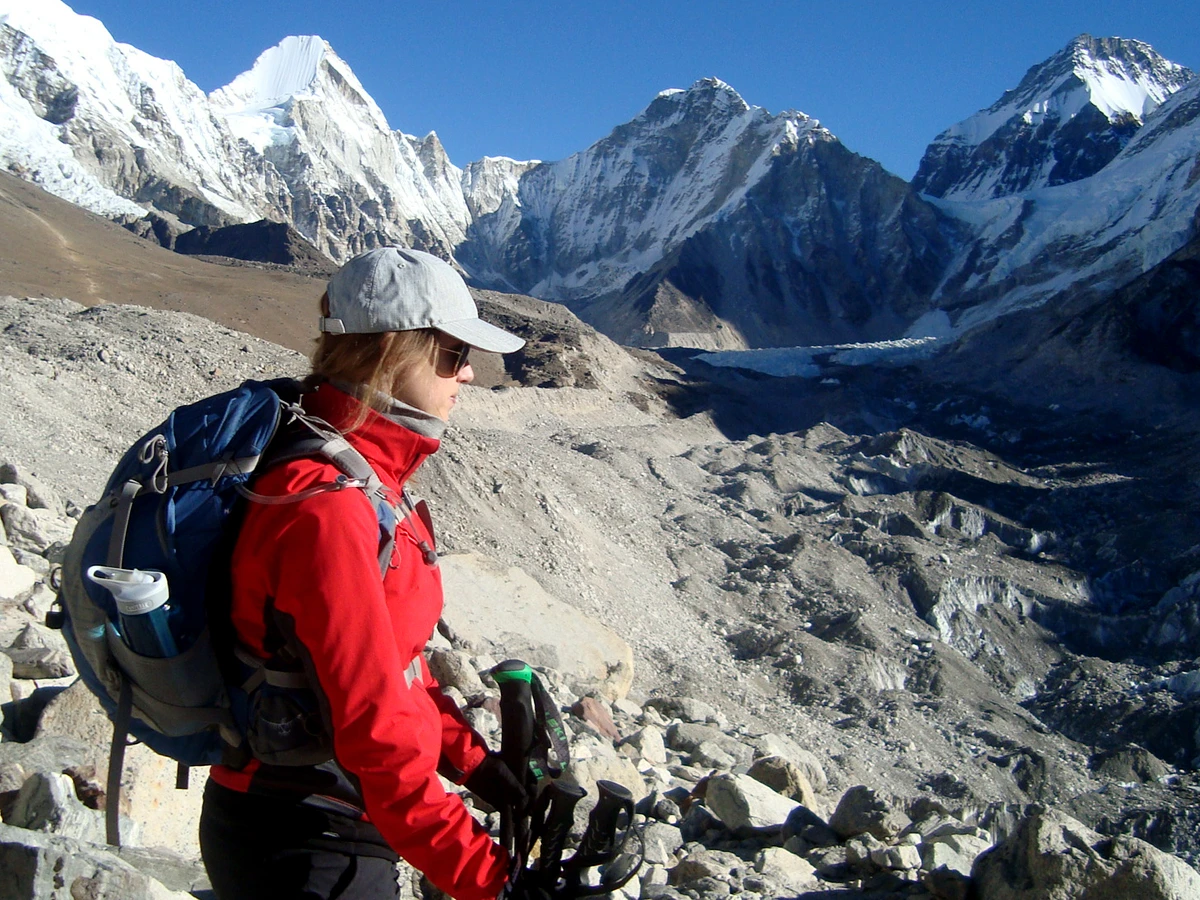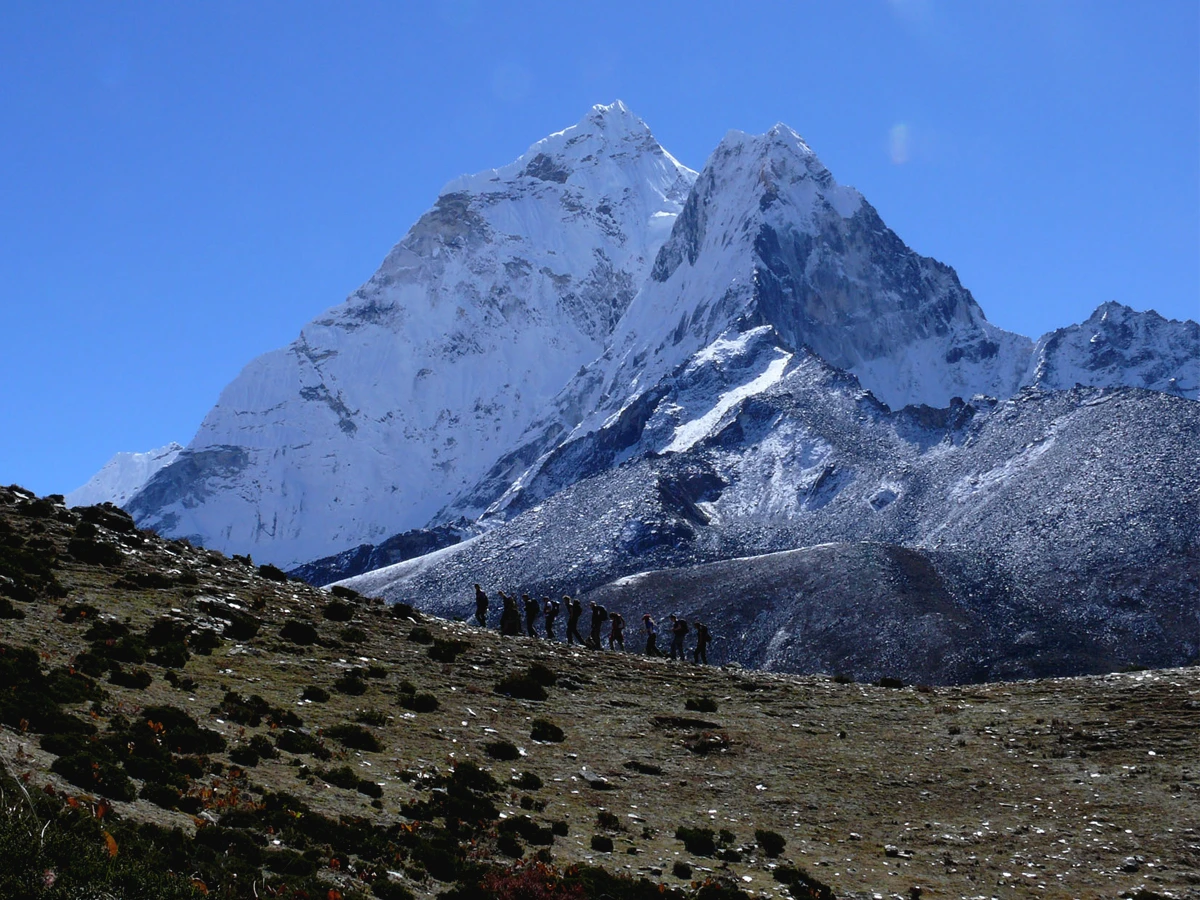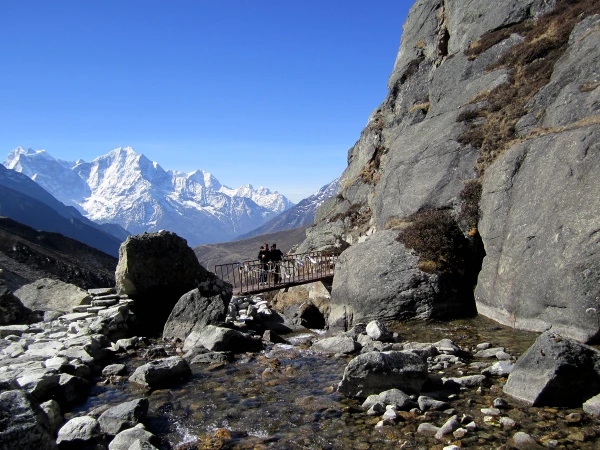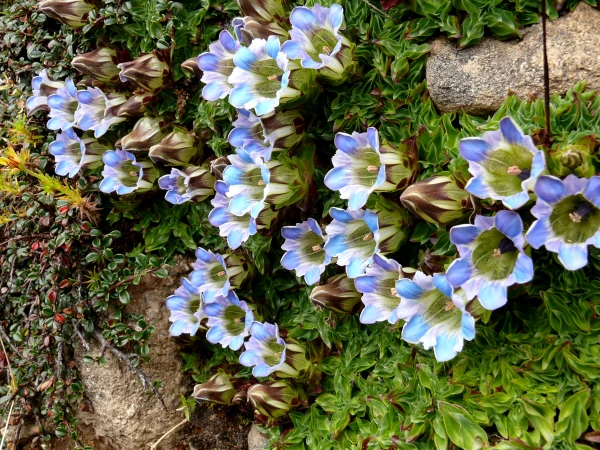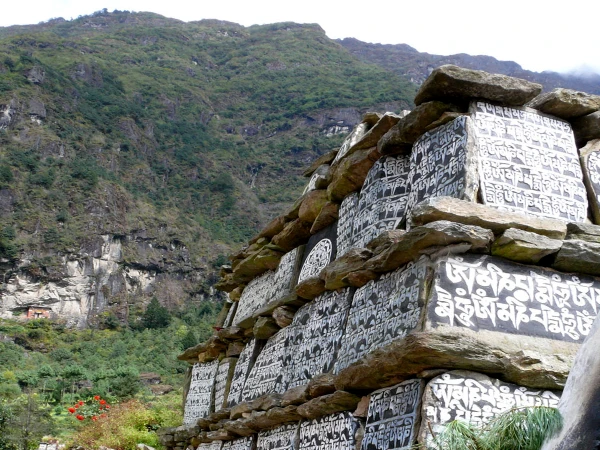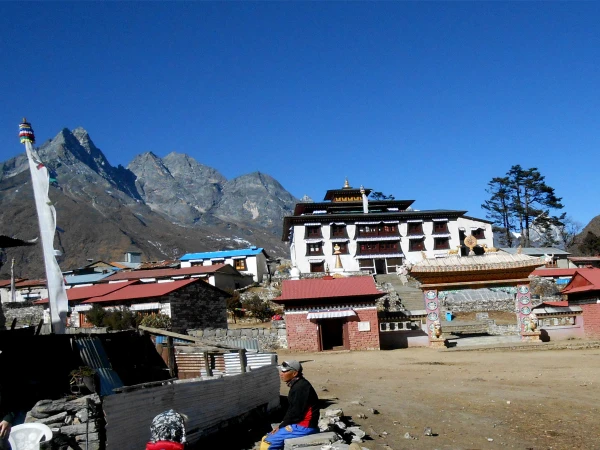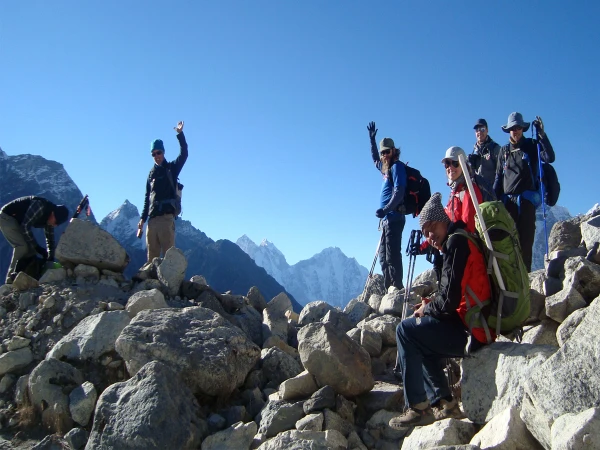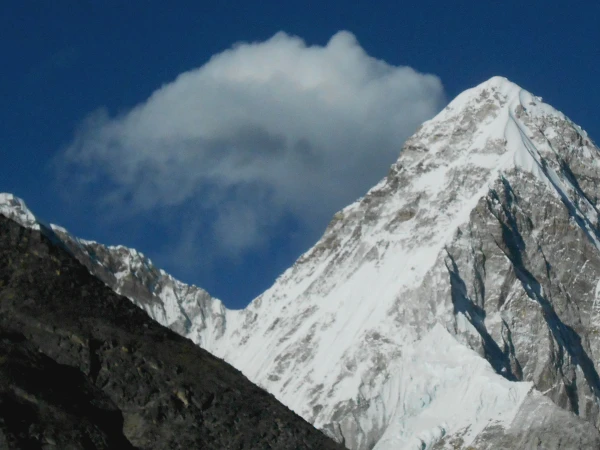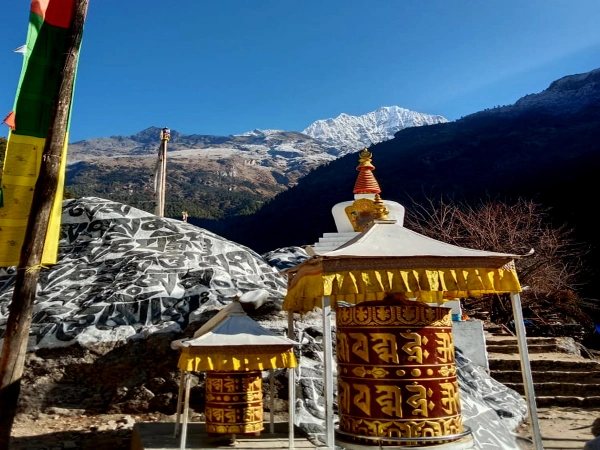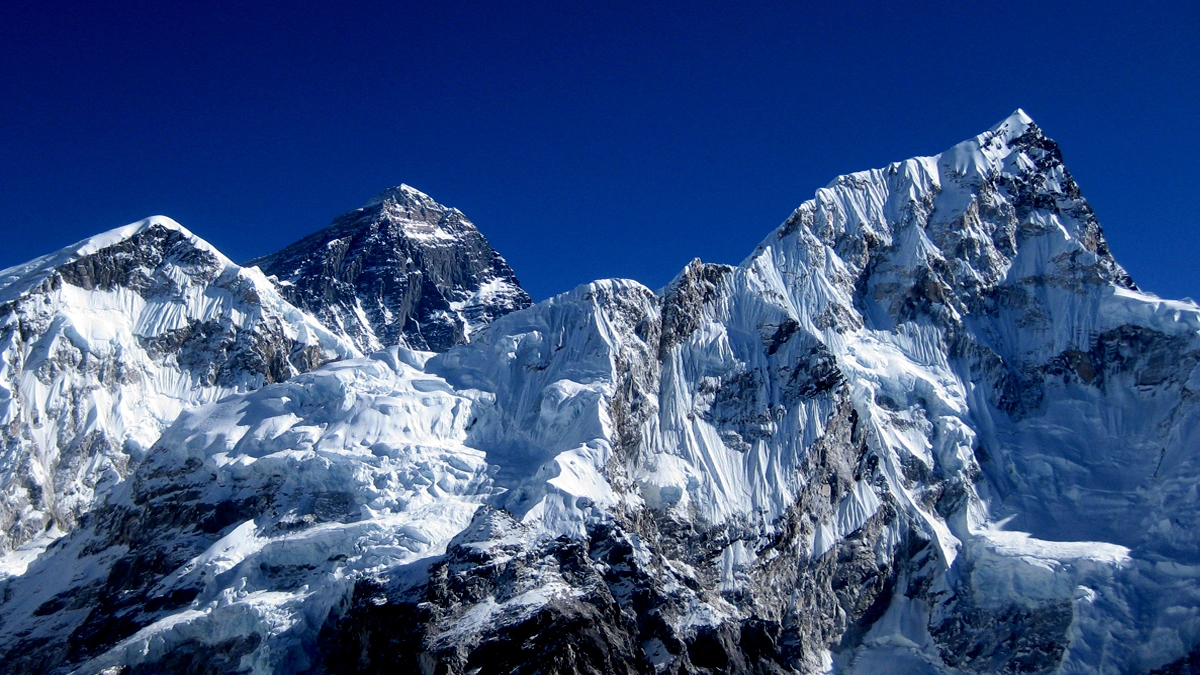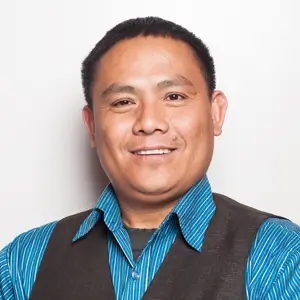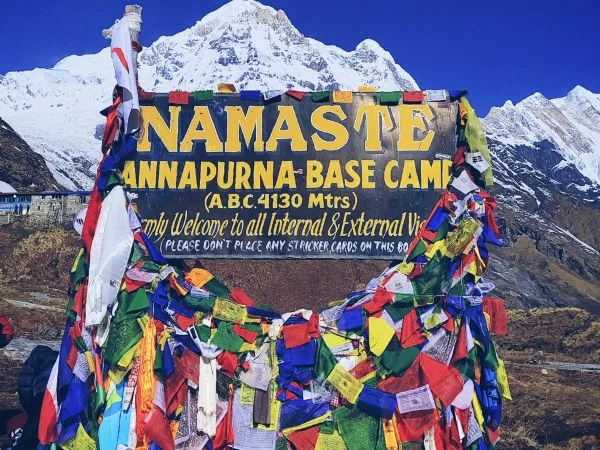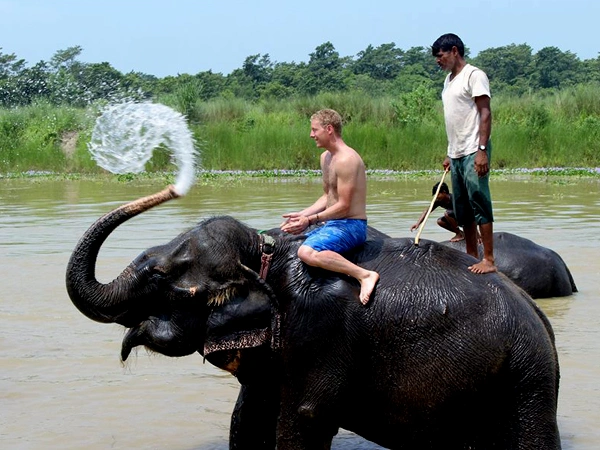Everest Three High Passes Trek in Nepal Himalayas
Are you looking for a challenging high-pass trekking itinerary with the best mountain views in Nepal's Everest region?
If the answer comes yes, the Everest Base Camp Three High Passes Trek could be a top bucket list item for your next Nepal holiday for the stunning views, Sherpa valley, remote area, and challenging high passes in the Nepal Himalayas.
The 21-Day Itinerary of Three High Passes includes the Everest Base Camp Trek, which is one of the most adventurous and scenic trekking routes in the Everest region of Nepal. It's famous for its high mountain walking passes through remote trails, and spectacular views of some of the highest peaks on Earth, including Mount Everest, Makalu, and Mt. Cho Oyu.
The Everest Three High Passes Trek Overview
This is a challenging trekking trail in the Everest region of the Nepal Himalayas. To get the achievement, the trekkers require the best physical fitness and good health with previous high-altitude trekking experience, which can help complete the Everest Three High Passes Trek in Nepal.
Location: Everest (Khumbu) Region, Nepal
Highest Point: Kongma La Pass (5,535m), Cho La Pass (5,420m), and Renjo La Pass (5,360m)
Best View Point: Syangbuche, Tengbuche, Kala Patthar (5,545m), Gokyo Ri, and Renjo La top
Available Trek Style: Teahouses and Guesthouses
Trip Duration: 17 - 21 Days (depending on itinerary and pace of holiday)
Difficulty: Strenuous (high altitude and remote terrain)
Is This Trek for Me?
The 21-Day Everest Three High Passes Trek is one of the most demanding and rewarding trekking routes of Nepal, in the Everest (Khumbu) region. This adventurous journey invites trekkers to experience the true thrill of the Himalayas.
The trek includes crossing three high-altitude mountain passes: Kongma La, Cho La, and Renjo La, and the best viewpoint: Namche, Everest View Hotel, Tengbuche Monastery, Dingbuche/Nagkar Tshang Hill, Gorakhsep, Kala Patthar, Cho La, Gokyo Ri, and Renjo La top. If you're physically fit and seeking an extraordinary challenge, the Everest Three Passes Trek is the perfect adventure for you!
Welcome to Nepal for Your Dream Trek To the Everest Three High Passes Trail
This remarkable 21-day trek takes you deep into the heart of the Everest region, guiding you through dramatic landscapes, remote valleys, and some of the world's highest and most scenic mountain passes. Designed for seasoned adventurers, the Three High Passes Trek offers a thrilling and rewarding experience that combines rugged wilderness, cultural immersion, and awe-inspiring mountain views. Along the way, you'll witness breathtaking panoramas of Everest, Lhotse, Nuptse, Cho Oyu, and other iconic peaks.
Why Did You Choose the Everest Three High Passes Trek in Nepal?
The following reasons and attractions, adventurous trekkers are pleased to plan their Nepal holiday for trek and tour in the Khumbu valley of the Everest area.
1. Full Everest Circuit Trail: The Everest three high passes trekking trail covers all the possible on-foot walking activities for the travelers/trekkers. It’s a combination circuit route from Lukla to Lukla through Namche-Tengbuche-Dingbuche-Kongma La Pass- Gorakhsep (the last accommodation), Everest Base Camp (EBC)-Kala Patthar-Cho La Pass-Gokyo Lake-Gokyo Ri (for the best view of Mt. Everest and Makalu)-Renjo La Pass-Thamel-Namche Bazaar, and Lukla for the flight back to Kathmandu.
2. Off the Beaten Path: Remote area, less crowded than the classic Everest Base Camp trek, and challenging high passes.
3. Scenic Diversity: This trip offers panoramic views of Everest, Nuptse, Ama Dablam, Thamserku, Pumori, and many other snowy peaks.
4. Cultural Experience: You will trek into traditional Sherpa Villages like Namche Bazaar, Dingbuche, Tengbuche, and Thame after the Renjo La pass, including the Buddhist monuments and ancient spiritual monasteries like Tenbuche Monastery and Thame Monastery. The local community families' cultural heritage customs are similar to Tibetan culture.
5. Challenging with Adventure: The trek route is ideal for experienced trekkers who are looking for a physically demanding route with remarkable scenery, plus fewer crowds of trekkers.
When Is the Best Season for the Everest Three High Passes Trek?
The diverse natural beauty of Nepal offers two main seasons that are the best for the Everest Three High Passes trek.
Spring Season (March to May):
From the month of March to May is the spring season. This time is best for this high pass trail, the weather will be stable, there will be excellent visibility, and you will see colorful spring flowers, rhododendron blooms, and varieties of Khumbu flora and fauna.
Autumn Season (September to November):
These months are the top season for this trek. The weather will be pleasant, with clear skies and mild temperatures, and you will see the best views of the Himalayas.
Winter Season (December to February):
It is not the recommended season; the 3-pass trail will be closed due to heavy snowfall. The weather is very cold; you should not prepare for this adventure during the wintertime. The trekkers could comfortably reach Everest Base Camp at 5,364 meters, and fully enjoy the Everest Base Camp Trek with the best view and without other tourists.
Summer Season (June to August):
This season is the rainy season in Nepal, and it will be difficult to take a flight to Lukla. Due to global warming, the climate has been affected in Nepal, particularly in the Everest region. If we have a clear flight to Lukla (the main gateway to Everest base camp) from the city of Kathmandu, you will enjoy this trip. But not recommended highly at this time of year.
How Much Does the Everest Three High Passes Trek Cost?
The trip budget always comes in handy, no matter how much it is. The cost of the Everest Three High Passes Trek could vary depending on several factors, such as the trekking style, with a full board package, or just trek guide service, or trek with porter service. The option comes with a price difference, such as Accommodation, transportation, trek duration, season, and level of comfort.
Our 21 Days Everest 3 high passes Trek cost at USD 1740 per person which included: Arrival and departure by tourist standard vehicle, accommodation in Kathmandu, both way airlines fare (Kathamndu to Lukla to Kathmandu), trek permit, meals and guesthouses on trek, trek guide and porter (one porter for two trekkers) including their meals, salary, transportation and insurance. The trek equipment provided includes a down sleeping bag, a down jacket, and duffel bags.
If you’re looking for a trek to Everest, the Three High Passes Trek is with guide service only. It is also available, and normally the trek guide's cost for this trip per day is USD 30-35 per day, inclusive of his daily wages. Estimated Cost of Everest Three High Passes Trek (per person). Starting from $1500 to $4000. The price depends on the service that you are looking for on this trek.
Why Everest Three High Passes Trekking?
These demanding ascents will test your endurance and determination, but the sense of achievement and the sweeping Himalayan views at the top make it all worthwhile.
Guided by Experts Sherpa, Surrounded by Beauty:
Throughout your journey, our experienced and knowledgeable guides will ensure your safety and comfort. Their deep understanding of the terrain, weather, and local culture enhances your trekking experience. You'll pass through glacial valleys, snow-covered ridges, and high alpine landscapes, all while learning about the unique flora, fauna, and traditions of the Everest region.
Cultural Discovery in the Land of the Sherpa:
The trek offers more than just natural beauty. You’ll have the chance to explore traditional Sherpa villages, interact with the warm and welcoming locals, and witness their fascinating way of life. Visit ancient Buddhist monasteries, soak in the spiritual energy of the Himalayas, and gain insight into the profound blend of Tibetan Buddhism and Sherpa traditions that define this region’s cultural identity.
An Adventure of a Lifetime:
The 21-Day Everest Three High Passes Trek is a true test of perseverance, courage, and adventure. Whether you’re trekking past turquoise glacial lakes, climbing to dizzying altitudes, or soaking in the serene beauty of a Himalayan sunrise, every step of the journey leaves a lasting impression.
Join Nepal Spirit Adventure for this unforgettable expedition. With our experienced team, carefully crafted itinerary, and dedication to your safety and satisfaction, we promise you an unforgettable experience in the magnificent Himalayas.
